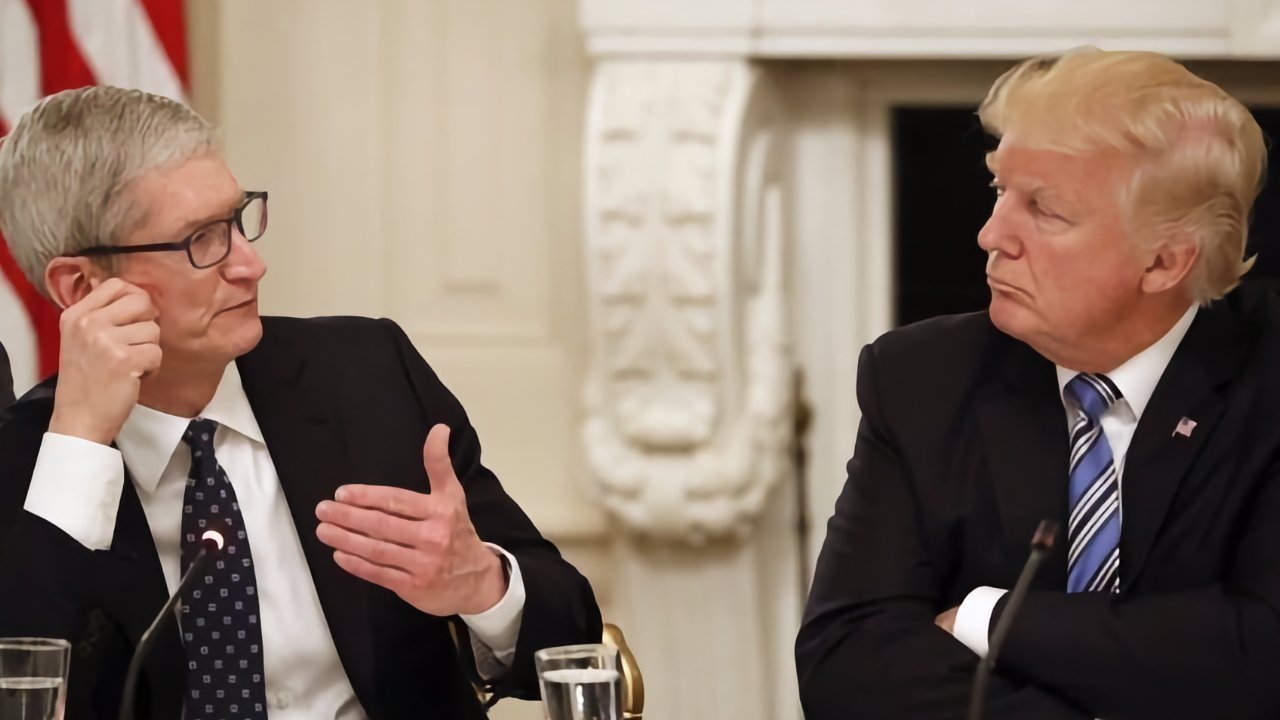Apple exempt from 100% semiconductor tariffs, thanks to its $100B U.S. investment
Apple has secured an exemption from the Trump administration's 100% semiconductor import tariff, but it's not clear how much this will impact Apple's bottom line.

Apple has received a tariff exemption, thanks to its $100B U.S. investment.
Following an initial report and secondary confirmation early on August 6, Apple has revealed its plans to invest $100B in U.S. manufacturing efforts. While there are no new companies named, nor any efforts to move full device assembly to the US, the company's investment has earned it an exemption from Trump's tariffs on semiconductor imports.
During the announcement, which also featured Apple CEO Tim Cook, President Trump outlined his plans for semiconductor import fees. While a 100% tariff will be put in place, exemptions will be made for companies like Apple, which make efforts to bring manufacturing back to the United States.
"We're going to be putting a very large tariff on chips and semiconductors," President Trump said, "The good news for companies like Apple is, if you're building in the United States, or have committed to build, without question, committed to build in the United States, there will be no charge."
"So, 100% tariff on all chips and semiconductors coming into the United States. But, if you've made a commitment to build, or if you're in the process of building, there is no tariff, " President Trump told members of the press.
Apple doesn't import much into the US, as it doesn't manufacture that much in the US. Components like the Face ID module that are built in the US are mostly assembled from US-manufactured chips.
Commenting on Apple's $100 billion plan, Trump said the company is "not making this kind of investment anywhere in the world, not even close."
The reality of it, however, is that this figure is in line with Apple's prior efforts and announcements both in the US and elsewhere in the world. It also has almost nothing to do with iPhone manufacturing.
Cook has an established way of negotiating with Trump, where their conversations typically revolve around a singular issue of importance to Apple. This strategy helped Cook secure a tariff exemption for Apple during President Trump's first term in office, and it's not fully clear what will happen in 2025 with the iPhone 17 imminent.
Read on AppleInsider

Comments
Tariffs are taxes that are imposed on us, we the people when we import products from other nations. When other nations impose tariffs on our exports, their citizens pay the extra cost, not us when we export them to them.
And as for "deficit" - it is NOT the same as debt. We don't have deficits that are concerning. We don't "borrow" with deficits. Our deficit is only 5% of our GDP. Debt is what we borrow and owe to our government and that's 125% of our GDP! Reducing our deficit will do absolutely nothing for our debt.
1. The term "US Debt" is, by convention, shorthand for US Federal Government Debt. It is the total money owed by the federal government. This does not include private debt, the debt owed by US citizens and corporations.
2. When the US Government spends more than the revenue it collects, then it is said to run a budget deficit. To finance this shortfall in revenues, the US Government borrows money by issuing (i.e. selling) US Government Bonds. Any person, corporation, or foreign country who owns a US Government Bond is actually lending money to the US government.
3. So it is a mistake to say "We don't borrow with deficits." Deficits are actually a measure of how much the US has been borrowing. Saying that the US ran a deficit of X dollars in 2024 is the same as saying US debt increased by X dollars in 2024.
4. All other things kept unchanged, federal tax cuts lower federal revenues and thus raise the US deficit. US tariffs raise revenues and has the opposite effect on the deficit.
5. Tariffs will raise the cost of living which may very well force people to borrow more. But that increases private debt, not the US debt. Very high levels of private debt is generally seen to be bad for the economy but it has nothing to do with the US debt.
And by the way, 5% of US GDP is not something anyone would describe with the word "only".
It's actually pretty scary.